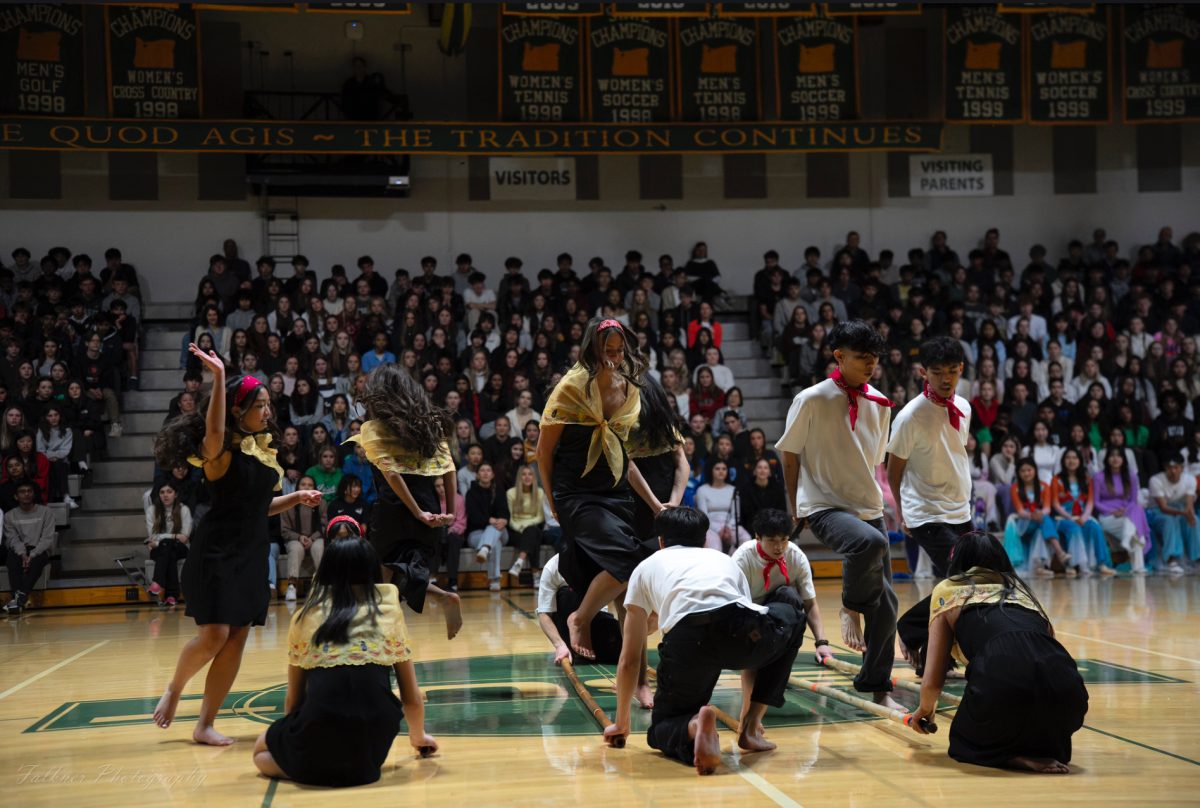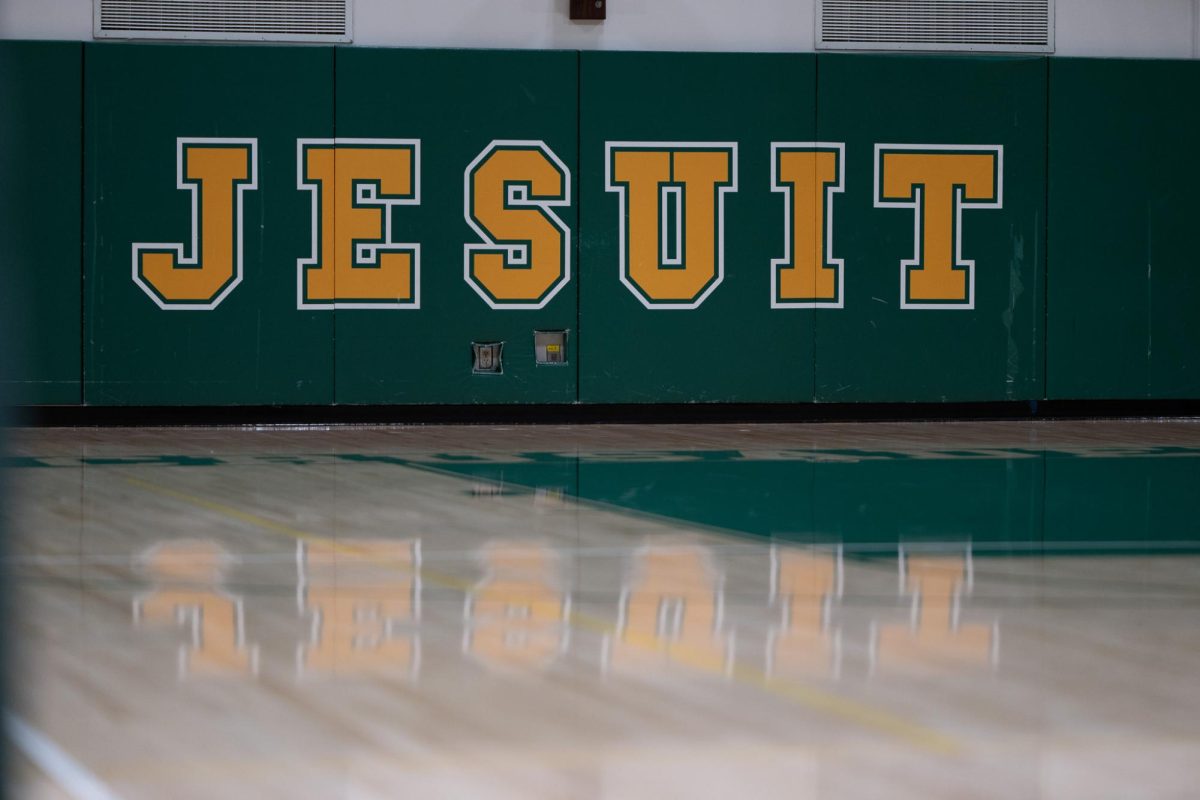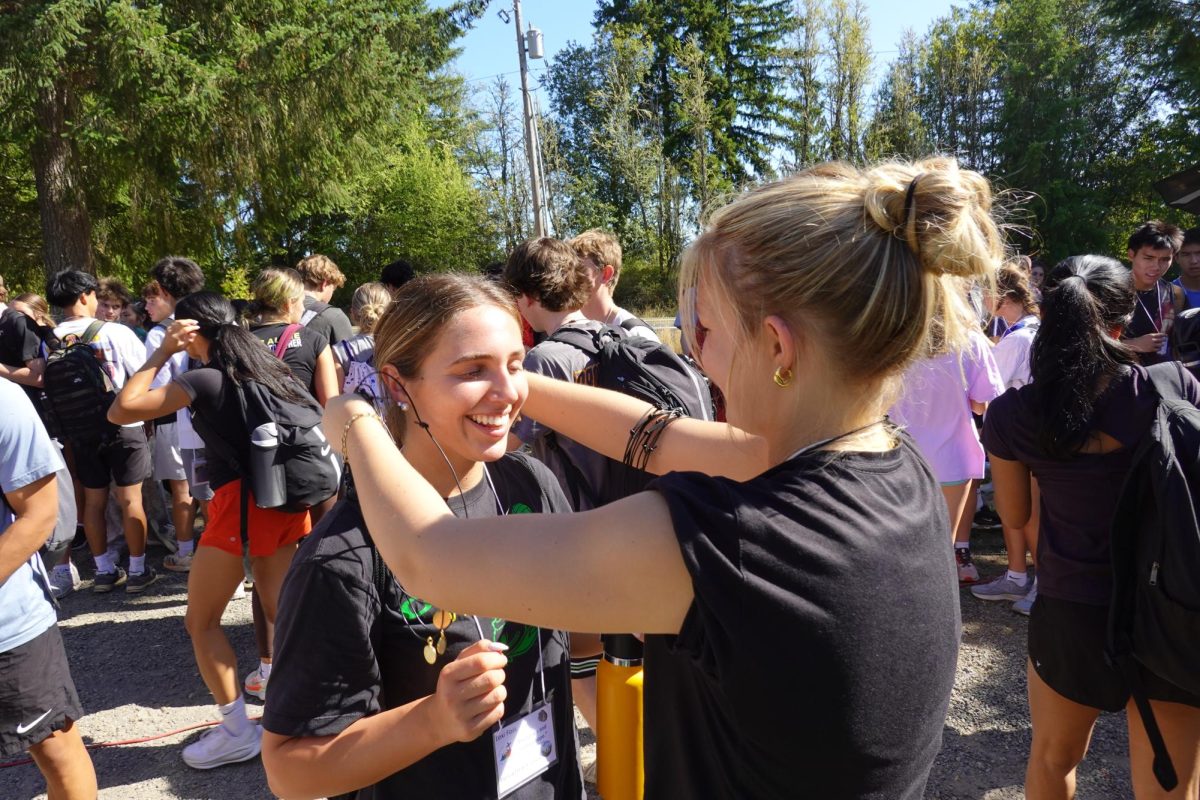
On May 7th, all Jesuit student athletes received an email about clarification and guidance for social media use from vice principal Steve DeKlotz. According to DeKlotz, the purpose was to remind athletes and students to be aware of what they post, and whether or not it follows the guidelines and policies in regards to social media use in the student handbook.
Prior to the email, the handbook already states that “Student athletes have the responsibility to portray their team, school and selves in a positive manner at all times. Sometimes this means doing things that are an inconvenience, but benefit the whole team.”
The email noted an increase in violations and material being posted that “is not consistent with the school’s social media policies, values, and missions.”
According to DeKlotz, many of these occasions may arise due to things that “have become more mainstream, with the usage of discriminatory language in music and other online material, or even how people communicate with each other.”
And the one common attention grabber is how some athletes post videos in their Jesuit uniforms. The handbook doesn’t clearly state that athletes aren’t allowed to post themselves with their uniforms on, but either way, it clearly states that we should be wary with what we post online with or without uniforms.
Privacy is also a common misconception when it comes to social media use for student athletes.
In the student handbook it states that even if a student believes their posts are private, their profiles or personal information may still be accessed by organizations like the OSAA, and even other faculty members or future employers.
“If people are getting involved on the internet in their own ways, there’s no reasonable aspect of us being involved in students' lives in that way. We never want to do anything that harms student’s privacy, but if certain things are brought to our attention, we have a responsibility to act accordingly. We just want people to represent Jesuit in a positive manner and emphasize what it means to be a Jesuit student, especially when it comes to media purposes. We want students to lean into their best selves, you all have this amazing opportunity to be a role model for others,” DeKlotz said.
Mr. Deklotz also brought up some pieces of advice he would give not only to student athletes, but for the rest of the student body. He specifically mentioned how he wants students to have fun in what we do, but to also think of others and our futures; one simple mistake on a post or anything in relation to social media can heavily impact futures or how others see one another.
“I think one of the big things I often say to students is being congruent and or similar in your real life as you are in your online life. It’s usually where people try to be funny or make jokes that I believe mistakes get made, and they’re trying to be something different than they are,” DeKlotz said.
Some student athletes around campus are heavily aware of the social media policy in the handbook, and understand how common it is for some students to forget about it.
Caden Hoppes has been a part of the Jesuit soccer program for 4 years.
“Personally, I think the rules are fair and clearly stated but I can understand why people might forget or not realize they’re breaking the rules. Whether it’s a song that cusses a little or just a gesture or motion that doesn’t represent the Jesuit gear you wear,” Hoppes said.
A few students also run instagram accounts directly connected to Jesuit, and are given a responsibility to follow guidelines and make sure posts and material are in good hands. Senior Audrey Bayless, who also played Jesuit varsity basketball for 4 years, is also aware of these rules as well.
“I actually run a Jesuit club instagram account and the rules are the same: that you are representing Jesuit so therefore all rules and expectations apply. However, I do believe the rules are a little unclear and should be covered again, but they are fair for the school and students,” Bayless said.
Some students and athletes also state their case that they should have the right to choose music choices as long as it doesn’t correlate any harmful language to the school. Senior Baseball athlete Dillon Garg is one of those who agrees with this.
“I think there’s some grey areas and misunderstandings of music choices in posts, especially with some that use some profane language. I disagree with the fact that we can’t use it as long as it is not hateful towards the school or people. Although I do completely agree that we must be mindful with what we post, especially representing our school and athletics, ” Garg said.
Senior golfer Jack Harrington believes athletic social media accounts across Jesuit should have more freedom in what they post, arguing that it's a reflection of the competitive spirit that defines the sport.
“I think that the sports accounts for teams should be able to have the free will to post what they want. Some professional teams that I’ve seen online like to “talk trash” or post other funny material about other teams. I think, in general, that’s the spirit of sports,” Harrington said.
Senior Jack Goldstein believes that Jesuit does have the right to monitor social media posts made by students, due to the fact that the school is private.
“I think that since Jesuit is a private institution, they should be allowed to do whatever they want to. If this were a public school, however, I don’t think they would have the legal right to regulate what students are posting on social media. We signed a contract every year saying that we will abide by the Jesuit policies, and that also goes with why I think the school is able to implement those policies,” Goldstein said.
Other students, like seniors Ron Olivares, Maura O’Scannlain, and Angel Xu are in the middle about allowing Jesuits to monitor social media from students outside of school and whether or not it infringes student privacy.
“I think the only time that schools are allowed to monitor what we post, is if another student reports or has a problem with the post. An example of this could be occasions like cyber bullying, the school obviously needs to see what causes these occasions and that’s where they can step in and monitor some things,” Olivares said.
“I think for the most part the school shouldn’t be allowed to monitor what we post on social media, but if it’s something really bad or something against the school, then maybe Jesuit can be involved in that,” O’Scannlain said.
“I mean yes and no. In terms of things like violence or bad things upon the community, then yes obviously Jesuit have the right to monitor things posted on the media. But also there has to be a limit to it, especially when it comes to personal lives,” Xu said.









